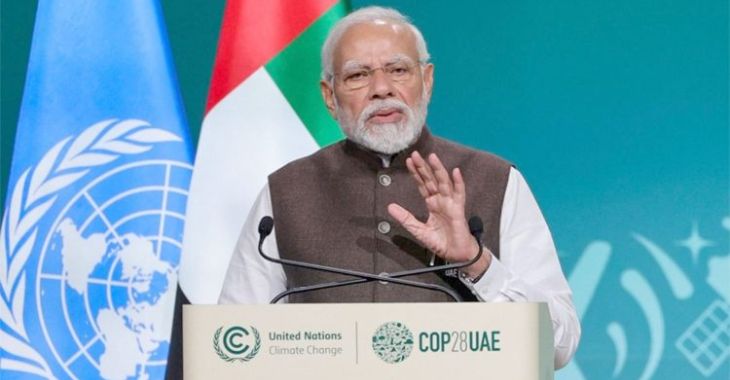Prime Minister Narendra Modi, in his address at COP-28, refrained from new commitments to address global temperature rise but proposed to host the 33rd edition of the annual summit in India in 2028. Emphasizing the need for developed countries to vacate carbon space by 2050, he invited nations to join India’s “Green Credit Initiative,” a non-commercial effort to create a carbon sink.
While approval for hosting COP-33 typically occurs two years in advance, Modi’s proposal would mark India’s second time hosting the summit, the first being in 2002. The Green Credit scheme, described as “non-commercial,” aims to incentivize voluntary environmental actions across sectors.
“A small part of humanity has ruthlessly exploited nature. But the entire humanity is bearing the cost of it, especially the inhabitants of the Global South. The selfishness of a few will lead the world into darkness, not just for themselves but for the entire world,” stated Modi during the summit’s high-level segment.
The Green Credit initiative seeks to generate credits for plantations on waste or degraded lands and river-catchment areas to rejuvenate natural ecosystems. Modi reiterated India’s commitments from COP-26, including a 45% reduction in emissions intensity and achieving net-zero by 2070.
He welcomed the Loss and Damage Fund’s approval by COP-28 and urged countries to finalize a new target on climate finance, emphasizing that new financial targets should not overshadow commitments to the Green Climate Fund and the Adaptation Fund.
Arunabha Ghosh, CEO of CEEW, commended Modi’s vision at COP-28 and sees the proposal to host COP-33 in 2028 as an opportunity for India to highlight Global South issues and climate justice. Arti Khosla, director of Climate Trends, described Modi’s offer to host COP-33 as a diplomatic masterstroke given the climate discussions’ current mood in Dubai.



![[CITYPNG.COM]White Google Play PlayStore Logo – 1500×1500](https://startupnews.fyi/wp-content/uploads/2025/08/CITYPNG.COMWhite-Google-Play-PlayStore-Logo-1500x1500-1-630x630.png)